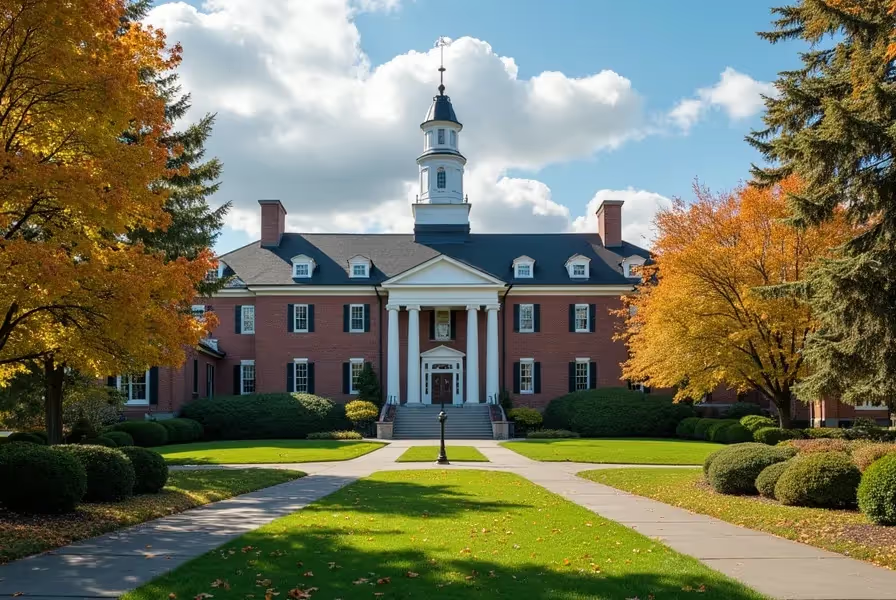Explore Top Higher Education Options in Massachusetts
Massachusetts is home to some of the most renowned colleges and universities in the United States. Whether you're looking for prestigious private institutions, world-class research universities, or affordable public colleges, Massachusetts offers a wide range of choices. This guide covers top colleges in Massachusetts, their academic programs, admissions requirements, and tips to help you make an informed decision.
Why Study in Massachusetts?
Massachusetts has long been a hub for education and innovation. The state combines rich academic traditions with cutting-edge research and technology. When you study here, you're not just earning a degree — you're joining a vibrant community of learners and leaders.
Key reasons to choose colleges in Massachusetts:
- Access to top-ranked universities and liberal arts colleges
- Strong programs in business, technology, healthcare, and sciences
- Proximity to research institutions, hospitals, and global companies
- Rich student life and cultural diversity
Top-Ranked Colleges and Universities in Massachusetts
Here are some of the most respected and high-performing colleges in Massachusetts:
- Harvard University (Cambridge): Known globally for excellence across disciplines including law, business, medicine, and public policy.
- Massachusetts Institute of Technology (MIT, Cambridge): Leading provider of STEM programs, especially engineering and computer science.
- Tufts University (Medford): Strong in international relations, arts and sciences, and dental and veterinary medicine.
- Boston College (Chestnut Hill): Top-ranked private university with rigorous programs in business, education, and theology.
- Boston University (Boston): Offers a wide variety of undergraduate and graduate programs with strong global ties.
- University of Massachusetts Amherst (Amherst): The flagship campus of the UMass system with leading public research opportunities.
- Williams College (Williamstown): A top liberal arts college with a student-centered learning approach.
- Amherst College (Amherst): Known for academic freedom and open curriculum, ideal for independent learners.
Popular College Majors and Degree Programs in Massachusetts
Massachusetts colleges are known for a wide range of academic strengths. Here are popular majors among students in the state:
- Engineering (Mechanical, Electrical, Software)
- Computer Science and Information Technology
- Health Sciences (Pre-Med, Nursing, Public Health)
- Business Administration and Finance
- Political Science and International Relations
- Education and Teaching
- Psychology and Social Work
- Environmental Science and Sustainability
- Creative Arts (Music, Theater, Visual Arts)
Many schools in Massachusetts also offer interdisciplinary programs, research projects, and accelerated degree paths.
Understanding College Admissions in Massachusetts
College admissions in Massachusetts can be competitive, especially at selective institutions. However, each school has its own criteria and process. Here's what you should prepare:
- GPA & High School Coursework: Most top colleges expect a strong academic record with honors or AP-level courses.
- Standardized Test Scores: SAT/ACT scores are optional at some institutions but may enhance your application.
- Essays and Personal Statements: Share your goals, experiences, and why the college fits you.
- Extracurricular Activities: Leadership roles, community service, and special talents can make a big difference.
- Letters of Recommendation: Teachers or mentors who know your strengths can add credibility to your profile.
Deadlines vary between Early Action, Early Decision, and Regular Decision, so be sure to plan ahead.
Best Public Colleges in Massachusetts
If you're looking for great value and quality education, consider these top-rated public colleges:
- University of Massachusetts Amherst: A research-intensive university with hundreds of programs.
- University of Massachusetts Lowell: Known for engineering, business, and health sciences.
- Fitchburg State University: Affordable education with strong teaching and film programs.
- Salem State University: Offers nursing, education, and liberal arts programs close to Boston.
Public colleges often provide in-state tuition and financial aid options to reduce educational costs.
What GPA Do You Need to Get Into Colleges in Massachusetts?
Each institution has different academic expectations, but here's a general guideline:
- Highly Selective Schools (Harvard, MIT): 3.9 - 4.0 GPA
- Competitive Private Colleges: 3.5 - 3.9 GPA
- Public Universities: 3.0 - 3.7 GPA
- Community Colleges and Open-Enrollment Schools: No minimum GPA, but a strong transcript helps
Admissions officers also review the rigor of your coursework, extracurriculars, and your personal story.
Do Massachusetts Colleges Require SAT or ACT?
Many colleges in Massachusetts have adopted test-optional policies. You can still submit SAT or ACT scores if they reflect your abilities well, but you're not required to do so.
Top schools like MIT and Harvard have specific guidelines, so always check individual college websites for the most accurate and updated testing requirements.
Frequently Asked Questions About Colleges in Massachusetts
What are the best colleges for engineering in Massachusetts?
MIT, UMass Amherst, and Northeastern are known for engineering programs. They offer a mix of theory, research, and industry training.
Which Massachusetts college is best for business majors?
Harvard Business School, Boston College, and Babson College are highly respected. UMass Amherst also offers a strong business program through the Isenberg School.
Can I get financial aid if I study in Massachusetts?
Yes. Most colleges offer need-based and merit-based aid. The FAFSA and CSS Profile help schools determine your eligibility.
How do I apply to colleges in Massachusetts?
You can apply through the Common Application or directly through each college's admissions portal. Pay attention to deadlines, essays, and supplemental questions.
Is it better to go to a private or public college in Massachusetts?
Both options are excellent. Private colleges may offer more personalized learning, while public colleges are generally more affordable. Choose based on your goals, budget, and interests.
Take the Next Step Toward Your College Journey
Massachusetts offers outstanding opportunities for higher education across every field. Whether you dream of attending a world-class university or a supportive liberal arts college, you'll find a campus that matches your goals. Start researching programs, prepare your application materials, and take that next step toward your future. Your academic path begins today — and Massachusetts might just be where it all starts.










.svg)



